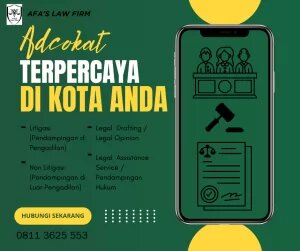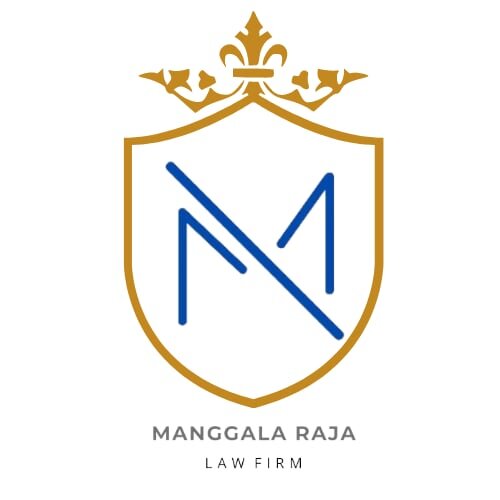Best Oil, Gas & Energy Lawyers in Indonesia
Share your needs with us, get contacted by law firms.
Free. Takes 2 min.
Or refine your search by selecting a city:
List of the best lawyers in Indonesia
About Oil, Gas & Energy Law in Indonesia
Indonesia, with its rich natural resources, is a significant player in the global energy market. The country's oil, gas, and energy sectors are vital to its economy, contributing significantly to national revenues and providing employment opportunities. Indonesia's energy sector is governed by a comprehensive legal framework designed to regulate exploration, production, and distribution while ensuring sustainable and environmentally-conscious exploitation of resources.
Why You May Need a Lawyer
Legal counsel in the field of oil, gas, and energy is crucial due to the complex and regulated nature of this industry. You may require a lawyer's assistance in situations such as negotiating contracts for exploration and production, navigating regulatory compliance issues, resolving disputes arising from joint ventures, or addressing environmental and safety concerns. Additionally, legal expertise can be invaluable in understanding the implications of recent government reforms or in structuring corporate transactions in this field.
Local Laws Overview
The legal landscape for oil, gas, and energy in Indonesia is governed by several key regulations. The key regulatory authority is the Ministry of Energy and Mineral Resources, along with pertinent laws such as the Oil and Gas Law No. 22/2001 and the Electricity Law. These laws cover licensing, production sharing contracts, taxation, and environmental protection. Additionally, local content requirements mandate the prioritization of Indonesian products and services to ensure that the industry benefits the national economy.
Frequently Asked Questions
What are Production Sharing Contracts (PSCs)?
PSCs are agreements between the government and contractors for exploring and producing oil and gas. Contractors bear the exploration risks and receive a share of production as compensation upon discovery.
Who regulates the oil and gas industry in Indonesia?
The industry is regulated by the Ministry of Energy and Mineral Resources, with SKK Migas overseeing upstream activities and BPH Migas handling downstream activities.
What are the taxation implications in the energy sector?
The sector faces specific tax requirements, including corporate income tax, Value Added Tax (VAT), and potential Dividend Tax. Each varies depending on the contract type and business activities.
How does Indonesia address environmental issues in this sector?
Indonesia implements strict environmental regulations. Companies must conduct Environmental Impact Assessments (EIA) and often adhere to the Indonesian Sustainable Palm Oil standards for bioenergy sectors.
What rights do local communities have regarding energy projects?
Local communities hold participative rights, especially if projects affect customary lands (tanah adat). Engagement and compensation are typically required under Indonesian law.
What is the significance of local content requirements?
They promote the use of Indonesian goods and services, aiming to boost the domestic economy and develop local expertise and capabilities in the industry.
Can foreign companies own 100% of energy projects in Indonesia?
While foreign investment is encouraged, there are certain restrictions. For instance, foreign ownership is often capped, necessitating partnerships with local firms.
What are the recent regulatory changes in this sector?
Recent shifts include the relaxation of regulatory barriers in an effort to attract more foreign investment and increased emphasis on renewable energy policies.
Is renewable energy part of Indonesia's energy policy?
Yes, the government aims to increase the share of renewables to 23% by 2025 as part of its National Energy Policy (KEN), promoting investments in solar, wind, and geothermal energy.
How can disputes in this sector be resolved?
Dispute resolution typically involves arbitration, often viewed as an effective method given its confidentiality and enforcement advantages under the New York Convention.
Additional Resources
For further information and assistance, individuals can consult the Ministry of Energy and Mineral Resources and organizations like the Indonesian Petroleum Association. Legal professionals with expertise in this field can also be valuable resources as they possess in-depth knowledge of the regulatory landscape and local business practices.
Next Steps
If you require legal assistance in the oil, gas, and energy sector, the following steps are recommended: identify and consult with a qualified legal expert or law firm specializing in energy law, gather all relevant documentation pertaining to your case, and engage in a detailed consultation to understand your legal rights and obligations. Preparing a list of specific questions or concerns can aid in making the most of your legal consultation.
Lawzana helps you find the best lawyers and law firms in Indonesia through a curated and pre-screened list of qualified legal professionals. Our platform offers rankings and detailed profiles of attorneys and law firms, allowing you to compare based on practice areas, including Oil, Gas & Energy, experience, and client feedback.
Each profile includes a description of the firm's areas of practice, client reviews, team members and partners, year of establishment, spoken languages, office locations, contact information, social media presence, and any published articles or resources. Most firms on our platform speak English and are experienced in both local and international legal matters.
Get a quote from top-rated law firms in Indonesia — quickly, securely, and without unnecessary hassle.
Disclaimer:
The information provided on this page is for general informational purposes only and does not constitute legal advice. While we strive to ensure the accuracy and relevance of the content, legal information may change over time, and interpretations of the law can vary. You should always consult with a qualified legal professional for advice specific to your situation.
We disclaim all liability for actions taken or not taken based on the content of this page. If you believe any information is incorrect or outdated, please contact us, and we will review and update it where appropriate.
Browse oil, gas & energy law firms by city in Indonesia
Refine your search by selecting a city.

















